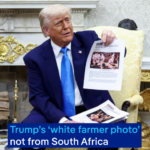
GOVT PROMISE A NEW DEAL WITH FERTILIZER ASSOCIATION
Published on May 6, 2024 at 12:28 PM by Alice Mazinga
Ministry of Agriculture has promised to take a new deal with the fertilizer association to master plan on how they can work together to improve the soil enriching ingredient.
This is according to a written response by Minister of Agriculture Sam Kawale following the showing up of the association’s new executive committee.
In the response, Kawale said they are looking forward to meet new team and plan the way forward
The minister’s assurance comes against a background of a cat and mouse relationship between government and the association in the past few years with the latter often attributing its fertilizer challenges to persistent forex shortages.
Meanwhile, Andrex Kalinde of Brussels Fertilizer Limited said he is yet to release a statement on the expectations from his new position, but the association administrator Mbawala Phiri said they believe in transparency and sharing of data and fact in their industry is the most effective way to clear misunderstandings
“Most misunderstandings comes from lack of information; hence, we makes information sharing a big part of our mission” he said.
He further said that on proposed reforms in the Affordable Inputs Programme (AIP) the association has submitted suggestions both in reports they write annually on the initiative and in their paper titled ‘Smart subsidy’.
“Our key suggestions include more focused beneficiary targeting, an earlier start time, and the use of the private sector in retailing as it increases options for farmers which reduces congestion.
“Ultimately, we believe the programme works better and benefits the agricultural industry at large when the private sector and government work together.” Phiri said
However, MBL Holdings Limited chairperson Leston Ted Mulli, who was among the notable executives that attended the meeting, has hailed Giannakis for steering the group to deliver quality products in the country.
In Malawi, 70 percent of the fertilizer supply is allocated to food crops and 30 percent to cash crops, according to the Ministry of Agriculture. Food crops mainly consist of cereals, legumes and tubers.
Last October, the association said the country was unlikely to import 300 000 metric tonnes of fertiliser due to the persisting foreign exchange shortage that affected imports of various commodities.
The association was formed in 2007 in response to the government’s need for a public private partnership in the input subsidy programme
Source:NPL


